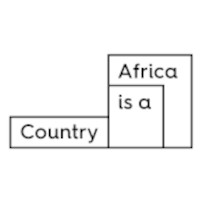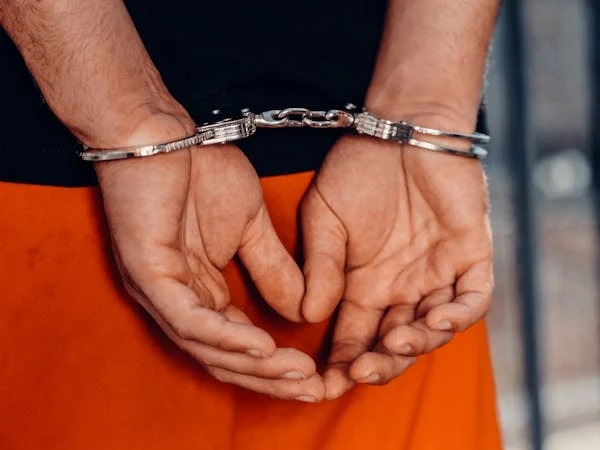The specter of Angola’s 1992 elections continues to impact the country’s democratic process.
Image credit Adam Reeder via Flickr CC BY-NC 2.0.
When Angola’s most recent electoral process was unfolding in August 2022, I felt compelled to revisit Margeret Anstee’s book, Orphan of the Cold War: The Inside Story of the Collapse of the Angolan Peace Process, 1992-3, for clues to make sense of it all. In the early 1990s, Anstee was the UN Secretary-General’s Special Representative to Angola. Her main job was to oversee the peace process agreed to by the governing MPLA (People’s Movement for the Liberation of Angola) and UNITA (National Union for the Total Liberation of Angola) the previous year. General elections were supposed to formalize power in a country whose political life ever since independence in 1975 was mainly characterized by civil war between the MPLA (an urban Marxist-Leninist government) and UNITA (and a pro-capitalist, vaguely Maoist, and Apartheid South Africa-supported rebel movement). Instead, following the elections of 1992, the civil war resumed.
The elections of 1992 are crucial to understanding Angola’s painful road to democracy, as Anstee has so forcefully insisted—a point most news coverage normally misses about Angola. I agree with Anstee that the elections of 1992 (the first and only time Angolans voted directly for their president) were for the most part free and fair. I would also add that they have been the only free and fair elections the country has organized to date because it was the one time the MPLA-government allowed power to be up for grabs in a general election. In subsequent elections (2008, 2012, 2017, 2022), the party machine fought forcefully and ruthlessly to organize elections that they could not lose. The elections since 1992 have certainly opened the possibility for the construction of democracy in Angola. But a countervailing process undertaken by the ruling party has integrated anti-democratic elements into the democratic order. The MPLA’s objective is to stay in power indefinitely.
With the 2022 elections, I think the MPLA-government reached the end of a cycle. From now on, as Giuseppe Lampedusa famously suggested in his novel The Leopard (albeit in a different context), things for (the MPLA) will have to drastically change for everything to be the same.
In 1992, for the first time, Angolans were called to vote for the president of the republic and parliamentary members in separate ballots. This was the root of the subsequent electoral crisis. Whereas MPLA gained the majority in parliament, the MPLA’s presidential candidate incumbent José Eduardo dos Santos failed to beat Jonas Savimbi in the first round. A second round was scheduled to take place a few weeks later but it never happened. By then Savimbi had already left Luanda, reassembled his troops, which had never been fully demobilized, and started to overtake cities and small towns. The post-electoral crisis did not only cause the death of thousands of Angolans but also plunged the country into ten more years of civil war.
After the killing of Savimbi in 2002, the possibility opened up for a return to the democratic process, and pressure from the international community increased. But the priorities of the Angolan government and the international community did not coincide. Whereas donors and international observers wanted the country to organize elections to legitimize power, the government defended the position that elections could only take place after the reconstruction of the infrastructure destroyed by the war. These squabbles coincided with the boom in global oil prices and the government prevailed by going ahead with its plans for reconstruction, backed by China’s massive loans as the guarantor.
In the ruling party’s plans, the purpose of national reconstruction was not only to improve infrastructure, allowing for the circulation of people and goods, but also to shape society in a certain way, or more precisely to shape the relationship between state and society. Having headed the state since 1979, Dos Santos felt that the war had robbed him of the opportunity to be a president, in the true sense of the word, and to be seen not simply as a commander-in-chief, and a warlord, but as a reformer, or transformer. Reigning over a civil society hit by apathy, he managed to impose his own vision of how things should go forward. The kind of American or Brazilian model of democracy, in which candidates need to court citizens’ votes did not interest him. He governed in the style of the colonists. A son of the colonial regime, he was pretty much a follower of António de Oliveira Salazar, who wrote and refined the Estado Novo’s constitution, which ever since the elections of 1948, created the legal mechanisms to organize elections that his party and his candidates could not lose.
In December 2007, dos Santos announced elections for September the following year. But with an important caveat: Elections would be only for parliament, and the country would wait until the next year to hold the presidential elections. One sees here the mark of 1992. In 2009 instead of announcing the dates and the process for presidential elections, dos Santos conveyed his party’s willingness to change the country’s constitution. In the previous year, the MPLA had won with more than 81.61% of the total ballots, which gave the party the right to amend the constitution.
In 2012, the ruling party won the elections for the first time under the terms of the new constitution adopted in 2010. South Africa was the inspiration for the new format for elections: the president of the party with the largest number of votes becomes the president of the republic by virtue of being the first name on the list of the political organization, party or coalition presented for the legislative elections, but. without the checks and balances of South Africa, needless to say (for instance, the separation between the executive and the judicial). Crucially, the president is not directly elected, but he/she has the prerogative to appoint most of the public officials (provincial governors, justice, the military, the police leadership and so on). In 2017, the MPLA won elections again, this time with 61% of the votes. We should pay attention here to the number, not only the fact of winning the majority but also the percentage the MPLA was losing in the elections. That’s a nearly 20% drop since 2009.
In 2017, dos Santos, for reasons related to his health, was no longer the candidate the MPLA put forward for the elections. He had chosen João Lourenço to run as president even as he remained the leader of the MPLA. This was an unusual situation. Since 1975, leading the party and leading the country had been the job of only one individual. Explicitly or at least implicitly, dos Santos had entered into this deal in exchange for his own protection, not to be subjected to any legal embarrassment, and the protection of the accumulated wealth of his family, particularly his children (one of his daughters, Isabel dos Santos, had been considered the richest woman in Africa by Forbes).
Since 2021, when the date for the 2022 election was announced, there was the feeling that this time elections would be different. There was a new generation of Angolans coming of age, with no recollections of the hardship of war, and numb to the propagandist effort of the Televisão Pública de Angola (Public Television of Angola) which come election time, usually shows old war footage in which UNITA is seen committing atrocities on a loop. But there were also two new elements in the electoral process: Firstly, there was a civil society that had become more mature, having in their midst several individuals and organizations, such Movimento Cívico Mudei (Civic Movement I Have Changed) and Luaty Beirão (an Angolan rapper and activist), who, having led a movement that failed to oust the MPLA à la Arab Spring, in 2011, decided to try their teeth at removing the ruling party through elections. Their overall strategy, which had been rehearsed in 2017 was, like in many other places in Africa, such as Zimbabwe, to present an alternative voting tally. Luaty Beirão did it in 2017, but could not count more than 10% of the total votes. He was for the most part relying on delegados de lista (party representatives) to send in their own reports. By 2022, with Mudei growing, and organized, and coordinating with the opposition candidates, an alternative vote count was possible.
The second aspect was UNITA itself. Since the demise of the megalomaniac, and narcissist Jonas Savimbi, UNITA had become a decentralized political party in the true sense of the word. With the party’s historical leadership decapitated, UNITA was able to organize free and fair internal elections, and, in 2020, they managed to elect the most agile politician in the organization, Adalberto Costa Junior. But he was an improbable candidate. Coming from the diaspora (Portugal) where he had been part of UNITA’s external representation, he is very well-spoken and eloquent, and he is mixed-race. To a certain extent, this helped make UNITA more palatable in places like Luanda, the country’s capital and largest city, where UNITA has for the most part been identified with everything that is retrograde (anti-white and anti-mestizo racism, and tribalism). More important than the candidate for president was UNITA’s decision to enter a coalition of opposition parties to challenge the MPLA instead of contending on its own.
The 2022 electoral campaign was not a walk in the park and the ruling party used all the tricks in its playbook against the opposition. There were reports of the opposition campaigners sleeping in their cars because they could not find accommodation in hotels in the provinces they were working in—either because all the rooms were taken, or owners had been instructed not to rent rooms to opposition members. In the run-up to the election, the Constitutional Court annulled the UNITA party congress that elected da Costa Júnior president in 2019, claiming he had not renounced his Portuguese citizenship in time to qualify. UNITA organized another party congress and elected him anew. He won 90% of the votes.
The election day was not different from the elections in 1992 and, in fact, in every single electoral process in Angola, voters show their civic spirit by showing up and voting in an orderly fashion. Everyone knew that counting would be the issue. As usual, provisional results announced by the National Electoral Commission (CNE) gave the ruling party about 60% of the total, the same number of votes they were given in the previous elections. These results were quickly challenged by UNITA, which had set up a scrutiny center, as well as by Luaty Beirão, who also set up a makeshift center and was rudimentarily counting the votes. In one of his first communications to the country, Adalberto Costa Júnior contested “the provisional results by the electoral commission stating that they are wrong figures.” Then a moment of chaos ensued. There were delegados de lista (ruling party representatives) destroying electoral documents. In Portugal (important to note here that it was the first time Angolans in the diaspora could cast their votes in a selected number of embassies), the Angolan consulate refused to announce the final tally, as they were constitutionally obliged because they had clearly lost elections there. In Luanda, a place that is historically a bastion of the MPLA, ruling party militants harassed supporters of the opposition.
Inevitably, an electoral crisis ensued, but nothing that resembled the one of 1992, because of the lengths the government has gone to avoid the political paralysis that came about. The whole electoral machine, as it should be abundantly clear by now, was honed to avoid such outcomes for the MPLA. The opposition can aspire to take a modest role in the rule but there is no way a transition or a transfer of power can take place. What the MPLA has done since 2008 is to set a date for the inauguration of the new government very soon after the election date so as to not allow any challenge to the results. The opposition is then put into a very problematic dilemma of accepting the results they deem fraudulent, or not accepting them at all and finding ways to challenge them nationally and internationally. The opposition may only enter the second option at their own risk, because it is entering a legal and constitutional minefield. Add to that, that a parliamentary member is feted with a number of privileges and amenities enticing enough to force members of the list to threaten to break ranks with their own party. Moreover, there are a number of very serious punishments targeting those who refuse to take their seats in the parliament. They can be banned from running in elections, for instance. However, never had the process and pressure to quickly start the legislative year been stronger and more complex than in 2022. The Armed Forces were deployed to the streets of Luanda as a persuasion, or dissuasion, tactic. And the MPLA-government was forced to decrease the number of votes to the minimum that would allow them to maintain a majority in the parliament. They gave themselves a mere 51%.
Antsee’s major critique of the electoral framework agreed on to end the civil war, in 1992, a peace brokered not by the UN, but by a Troika of Observers (USA, Russia and Portugal), was that it was concocted merely to legitimize power. Neither the MPLA nor UNITA were political forces that observed internal democratic processes. So, the elections of 1992 were not conceived of as foundations of power, as ways to think about the whole fabric of democracy. The constitution that led to the political order of 1992 had some of this, through the ways in which it separated the office of the presidency and the head of the government, or how it delineated local power. But there were several spurious elements in the air, which coalesced into an order of things that were later on distilled in the constitutional order of 2010. The winner takes all and the loser can only sit in parliament with all the benefits. This was actually one of the hardest nuts to crack in 1992 when Savimbi lost the election, but since there was a separation between the government and the legislative body, he actually had a particular role to play in the II Republic. Cynically, the 2010 constitution solved this riddle, by allowing the leader of the losing party to take a seat in what is, for the most part, a ceremonial parliament, because every important political decision is under the exclusive purview of the presidency.
All this constitutes a sort of ticking time bomb that convinces me that the 2022 elections may be the end of a 30-year cycle in Angola. To make its electoral fraud more plausible and palatable, the government admitted and was even forced to celebrate its defeat in Luanda, Cabinda, and Zaire. This is something unthought of a few years ago. Luanda is not only the most populated city in the country with about one-third of the country’s entire population, but it is historically the last redoubt of the ruling party. Yet, in Luanda, the MPLA did not manage to have more than 30% of the votes. The first corollary of this is the lack of appetite for organizing local elections, something the MPLA-government has been dragging its feet on since 1992. Having local elections in this legislature is perhaps merely a means to provide the opposition with launch pads to win national power in 2027.
But there is something lurking with more catastrophic consequences, which is worth looking at ahead of the next elections in 2027. The poisoned gift dos Santos left to João Lourenço is that of limited mandates. Lourenço “won” for the second time and therefore is no longer eligible for 2027, with the ruling party having to choose another candidate. However, Lourenço has shown privately and publicly his resistance to this idea. It is unfair for him to only govern the country for 10 years, given that his predecessor was in power for 38 years. He would be in favor of a constitutional revision that would allow him at least one last term, extending his leadership to 2032. The problem now is that for the first time since the institutionalization of the political order that came about with the 2010 constitution, the MPLA-government is not in a position to do so. It requires “two thirds of the Members in full exercise of their office” to revise the constitution. This will only work if they manage to buy out the necessary votes in the parliament. Given the weakness and the venality of the opposition, this is not a feat hard to accomplish.
The contemporary order of Angolan politics has been based on the original sin of Savimbi contesting the results of the elections that were the best organized and most fair and free. For a moment, in 2022 it seemed that Angola would finally get out of this recurrent loop, but it was not the case.
One can only expect this to happen in 2027.






